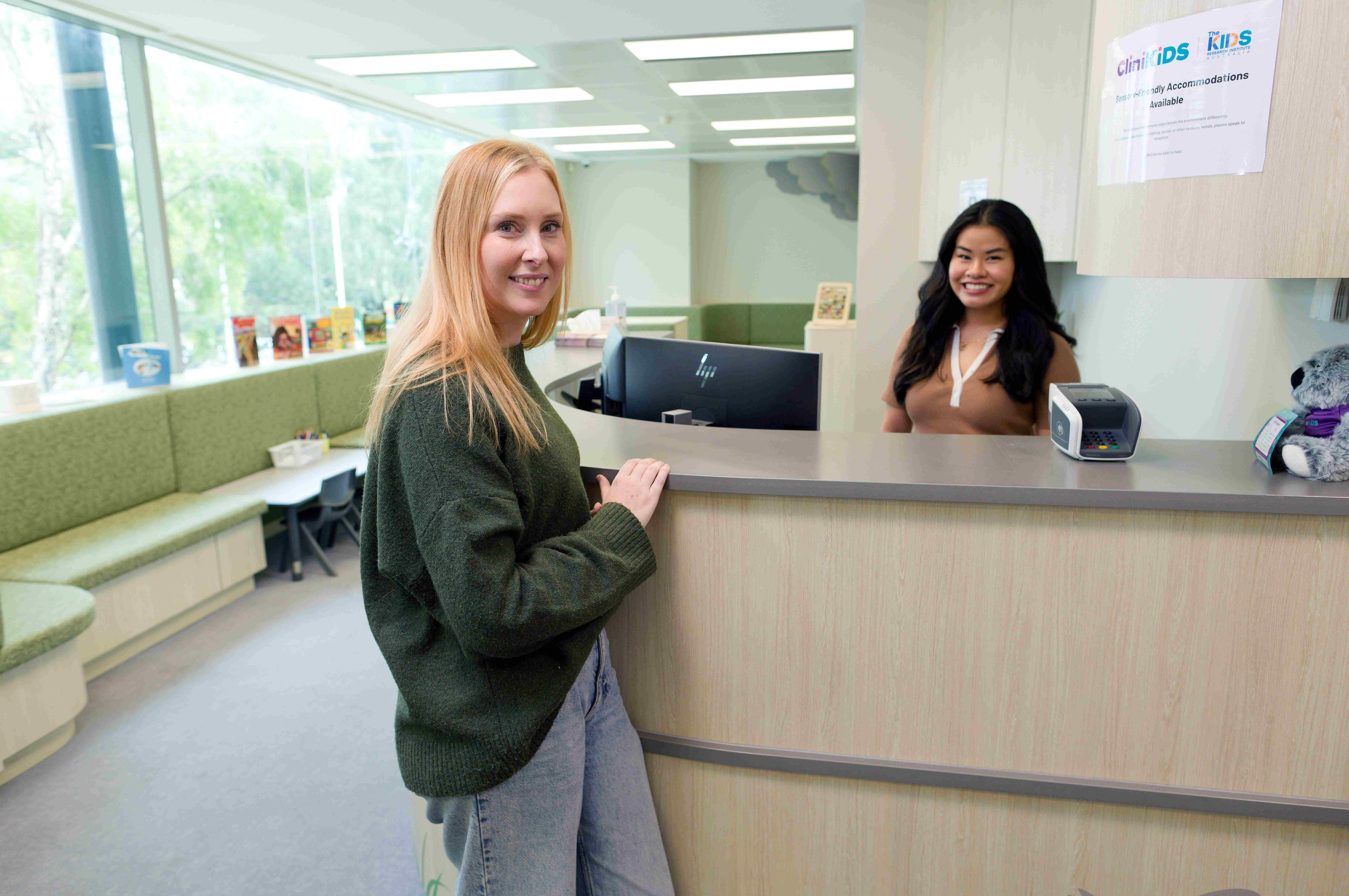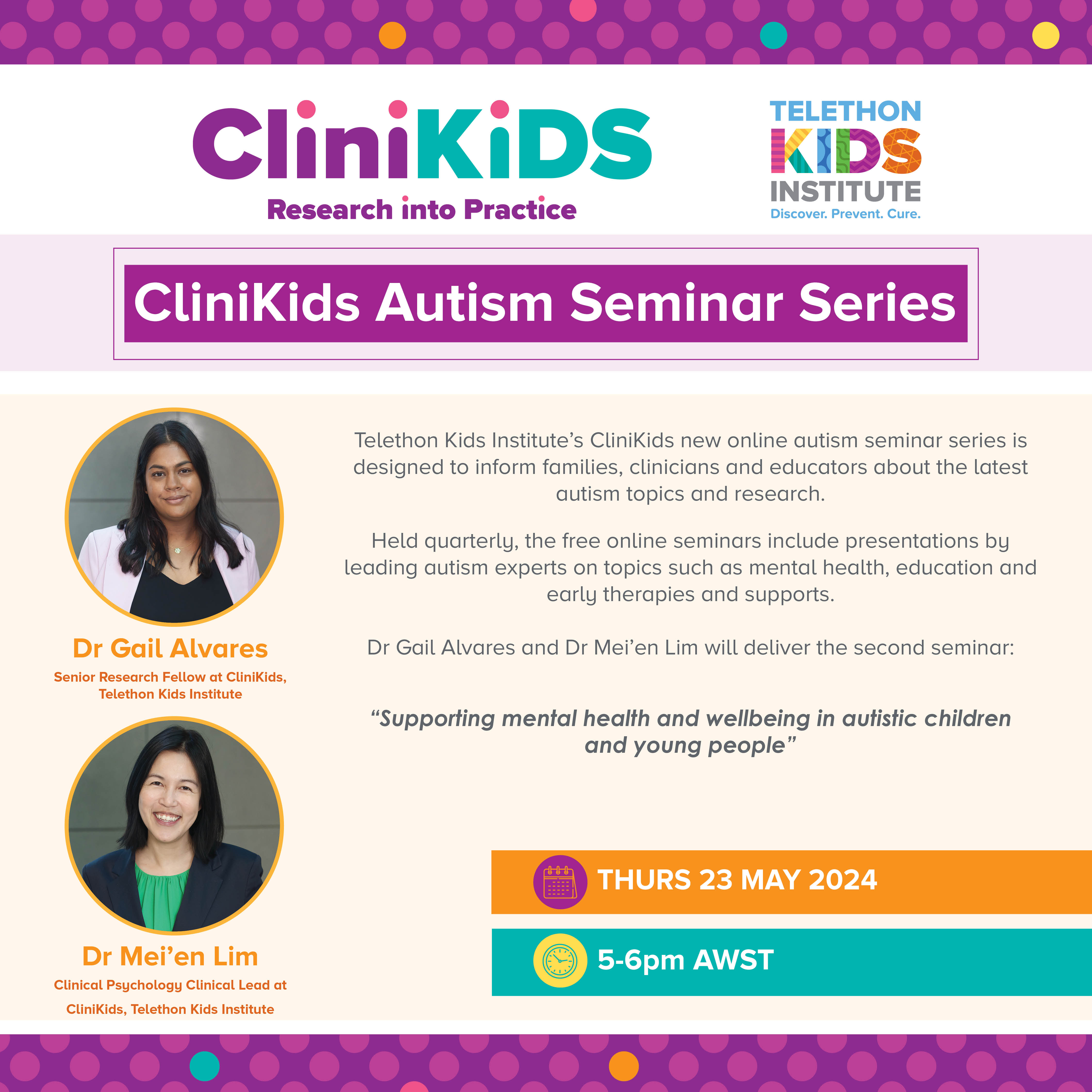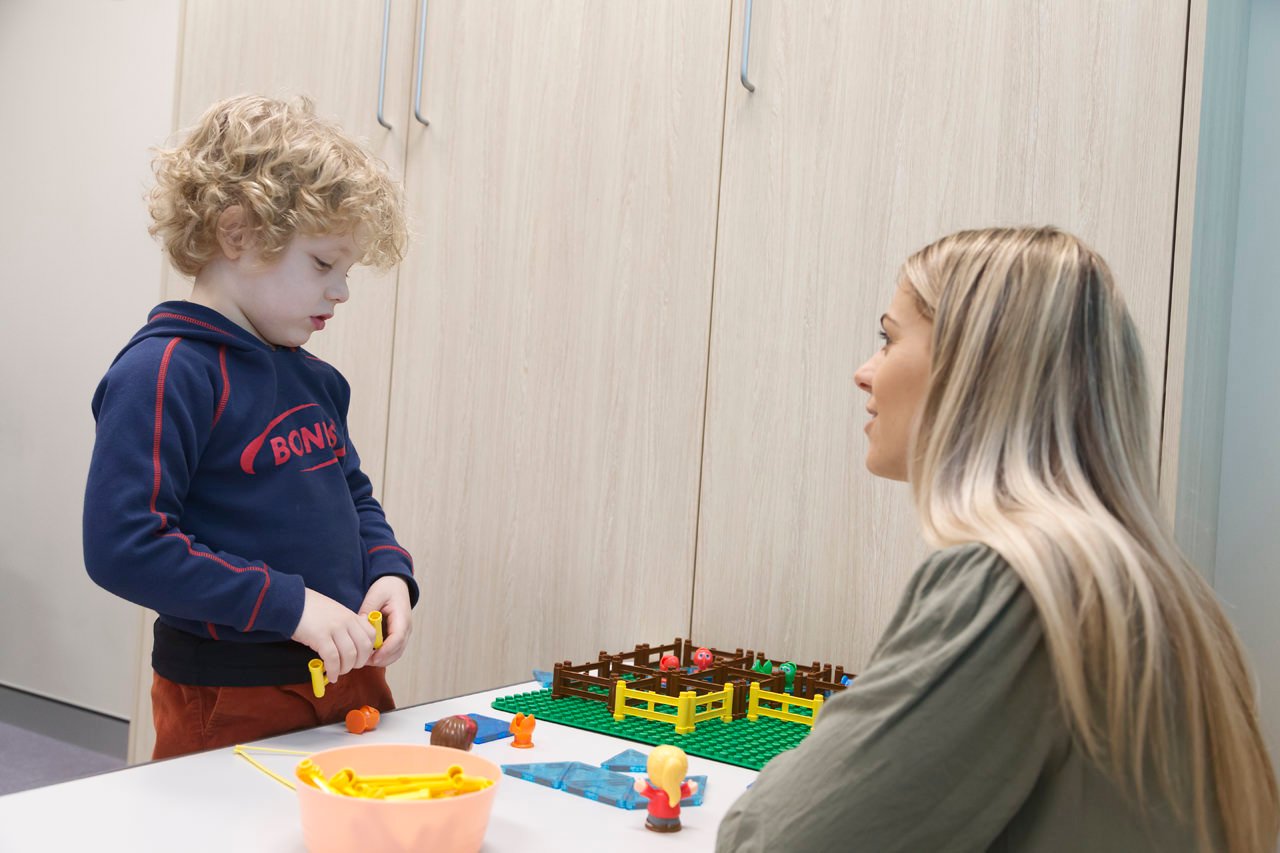Search


News & Events
Survey results revealedThank you to all the families who took the time to complete the 2025 CliniKids clinic survey. We were overwhelmed by the level of support. Here are the main findings and some feedback about the possibility of using AI in our day-to-day operations.

News & Events
Mental health seminarHere you will find follow up information from our autism seminar on mental health and autism.

Find out more about Paediatric Autism Communication Therapy training for allied health and autism professionals at CliniKids.
Research
Evidence that infant and early childhood developmental impairments are associated with hallucinatory experiences: Results from a large, population-based cohort studyCognitive and motor dysfunction are hallmark features of the psychosis continuum, and have been detected during late childhood and adolescence in youth who report psychotic experiences (PE). However, previous investigations have not explored infancy and early childhood development.
Research
Behavioural and neuropsychological outcomes in children exposed in utero to maternal labour epidural analgesiaRecent studies report conflicting results regarding the relationship between labour epidural analgesia (LEA) in mothers and neurodevelopmental disorders in their offspring. We evaluated behavioural and neuropsychological test scores in children of mothers who used LEA.
Research
Characterising Insistence on Sameness and Circumscribed Interests: A Qualitative Study of Parent PerspectivesManifestations of insistence on sameness and circumscribed interests are complex, with individuals varying considerably, not only in the types of behaviours they express, but also in terms of a behaviour's frequency, intensity, trajectory, adaptive benefits, and impacts.
Research
Utilising Behavioural and Sensory Profiles and Associated Perinatal Factors to Identify Meaningful Subgroups in Autism Spectrum DisorderThe heterogeneity of autism spectrum disorder clinically and aetiologically hinders intervention matching and prediction of outcomes. This study investigated if the behavioural, sensory, and perinatal factor profiles of autistic children could be used to identify distinct subgroups. Participants on the autism spectrum aged 2 to 17 years and their families were sourced via the Australian Autism Biobank.
Research
The valence-specific empathy imbalance hypothesis of autism: The role of autistic traits, alexithymia, emotion dysregulation, and gender differencesIndividuals exhibiting pronounced autistic traits (e.g., social differences and specialised interests) may struggle with cognitive empathy (i.e., the ability to infer others' emotions), although the relationship with affective empathy (i.e., the ability to share others' emotions) is less clear in that higher levels of autistic traits may be linked with increased affective empathy for negative emotions but reduced affective empathy for positive emotions. The current study investigates this empathy profile and whether alexithymia and emotion dysregulation help to explain it.
Research
Feasibility of a 2-minute eye-tracking protocol to support the early identification of autismWe tested the potential for Gazefinder eye-tracking to support early autism identification, including feasible use with infants, and preliminary concurrent validity of trial-level gaze data against clinical assessment scores. We embedded the ~ 2-min 'Scene 1S4' protocol within a comprehensive clinical assessment for 54 consecutively-referred, clinically-indicated infants (prematurity-corrected age 9-14 months).
